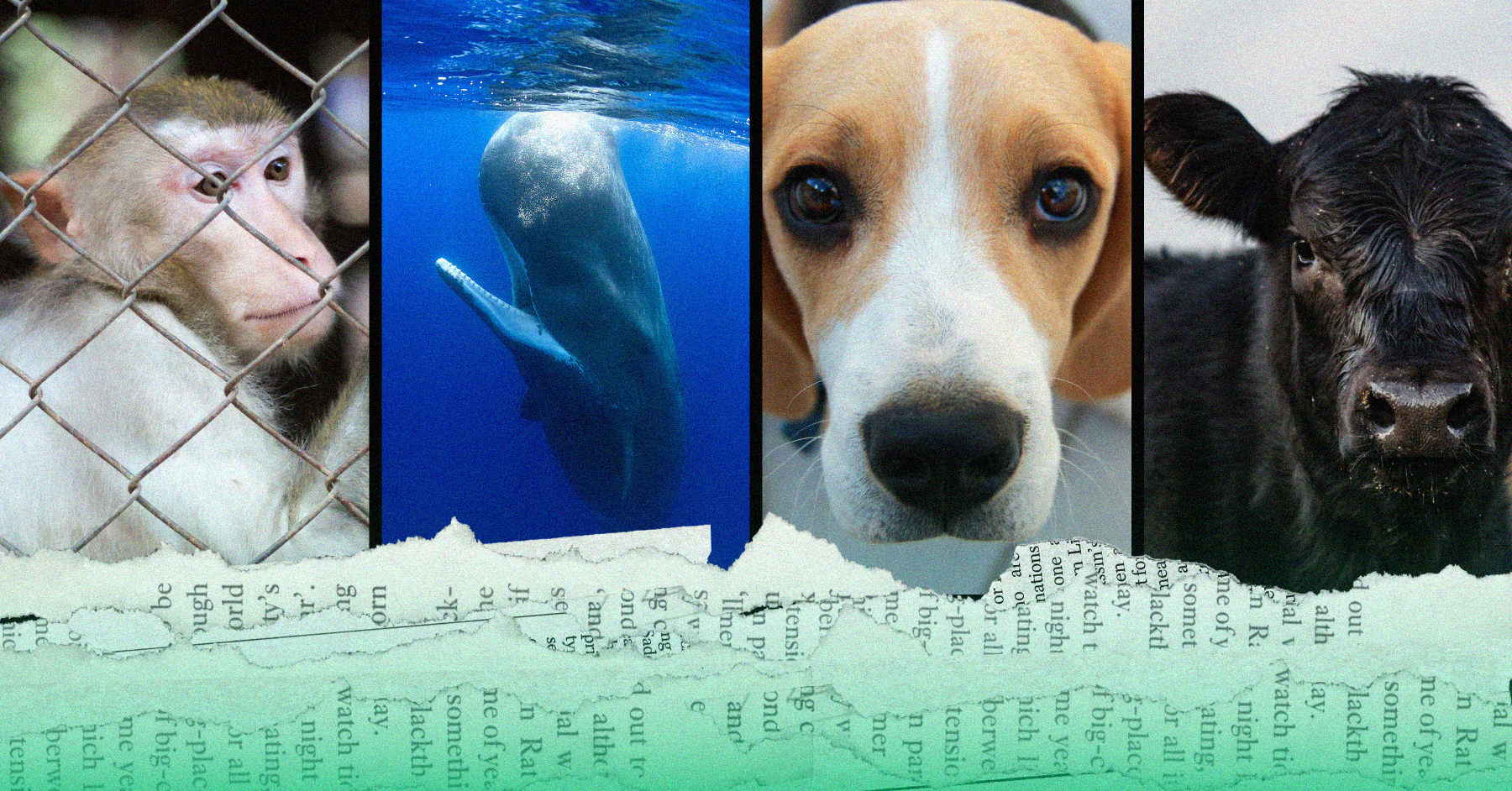
Here’s a roundup of this week’s biggest news stories related to animal research—all the recent media coverage you need to know right now to be the most effective activist for animals in labs.
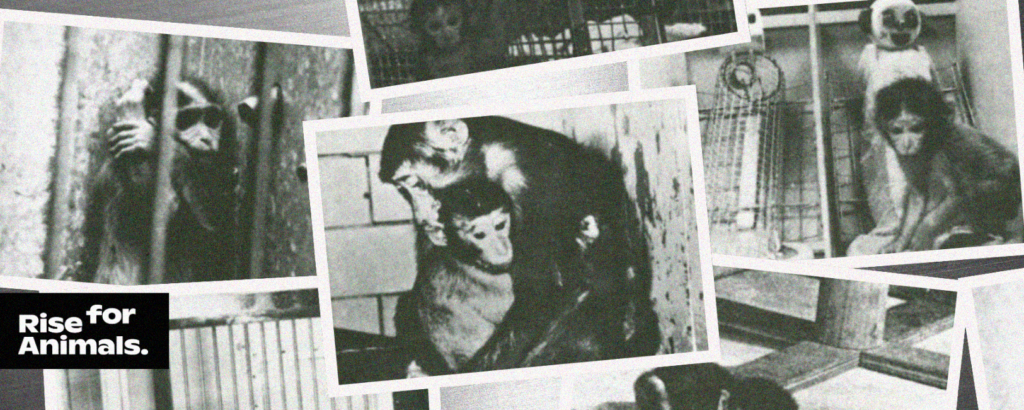
Motherly Love: Universal, Unyielding, and Unequaled
Rise for Animals, 5/10/2024
For at least the last century, animal researchers have forcibly separated newborns from their mothers in horrific experiments. Here, we expose the traumatizing research of Harry Harlow and others who have stolen babies away, just to observe the reactions and consequences.
In celebrating moms this Mother’s Day, we are reflecting on the sacred and incomparable bonds that exist between all species of mothers and their children. We are also dreaming of a world in which maternal bonds are honored and protected, not — as is done every single day in animal laboratories — unjustifiably severed. 📰 Full Story →
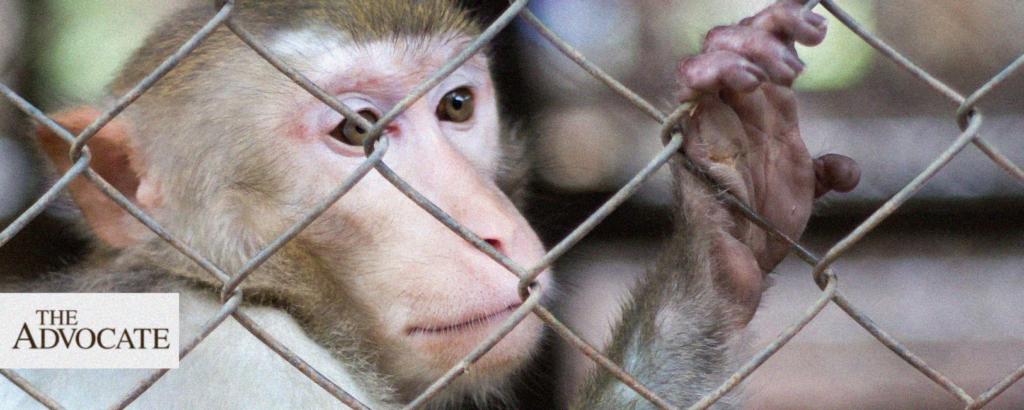
It’s in the Early Stages, but a New Primate Research Center Could Be Coming to Louisiana
Ashley White, 5/6/2024
“Acadiana could see another non-human primate research center in the future. The Louisiana State University Board of Supervisors at its April meeting approved a request from LSU-Eunice Chancellor Nancee Sorenson to create a proposal to bring the research center to life.”
“The center would be completely funded by external sources . . . She did not say how much funding would be involved. The center could be developed as part of a lease agreement on a portion of 80 acres of land that belongs to LSU-E.”
“There [] could be opportunities to conduct research for pharmaceutical companies and federal agencies. Sorenson said she’s been told pharmaceutical companies want more primate research centers to be established in the United States.” 📰 Full Story →
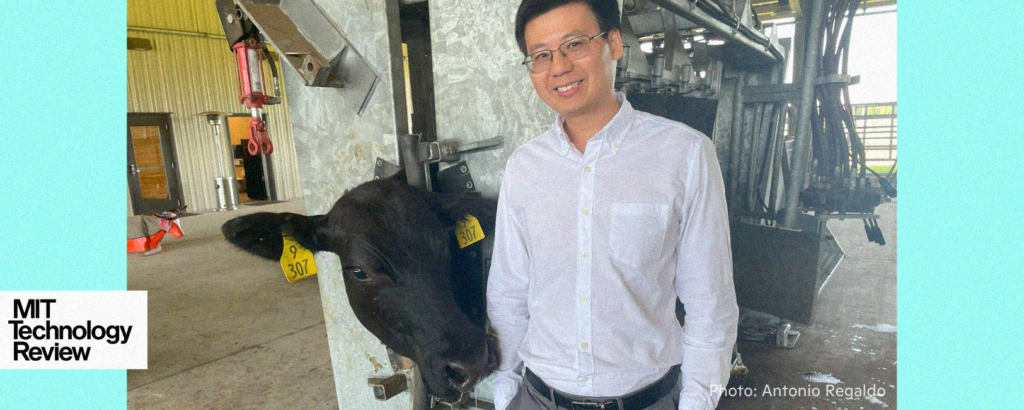
Scientists Are Trying to Get Cows Pregnant With Synthetic Embryos
Antonio Regalado, 5/6/2024
“ . . . cow number #307 was bucking in her metal cradle as the arm of a student perched on a stool disappeared into her cervix. The arm held a squirt bottle of water. Seven other animals stood nearby behind a railing; it would be their turn next to get their uterus flushed out. As soon as the contents of #307’s womb spilled into a bucket, a worker rushed it to a small laboratory set up under the barn’s corrugated gables.”
“The experiment, at the University of Florida, is an attempt to create a large animal starting only from stem cells — no egg, no sperm, and no conception. A week earlier, ‘synthetic embryos,’ artificial structures created in a lab, had been transferred to the uteruses of all eight cows. Now it was time to see what had grown.”
“After a [sic] about 20 embryo transfers over three years, [cow #307’s] cervix was worn out, and she came [to the slaughter room].”
“Cattle aren’t the only species in which researchers are checking the potential of synthetic embryos to keep developing into fetuses. Researchers in China have transplanted synthetic embryos into the wombs of monkeys several times.” 📰 Full Story →

She Worked in Animal Research. Now She’s Blocked From Commenting on It.
Rachel Weiner, 5/6/2024
“ . . . Krasno started posting online about her experiences. Eventually, she started tagging the school in those posts and then commenting on its pages. Many of those comments disappeared. As she would later learn, it was not a mistake or a glitch. Both the university and the National Institutes of Health were blocking her comments. Now with support from free speech and animal rights organizations, she is suing both institutions.”
“[Harry] Harlow’s name, along with that of a scientist who worked with him, are on NIH’s list of banned words. So are ‘animals,’ ‘cruelty,’ ‘monkeys,’ ‘revolting,’ ‘testing’ and ‘torture.’ After Krasno’s lawsuit was filed, ‘PETA,’ ‘#stopanimaltesting,’ ‘#stoptesting’ and ‘#stoptestingonanimals’ were taken off the list of banned words . . . Other posts blocked by NIH included external links, profanity, strings of numbers, the mention of cannabis and ‘#believemothers,’ used by antivaccine activists.” 📰 Full Story →
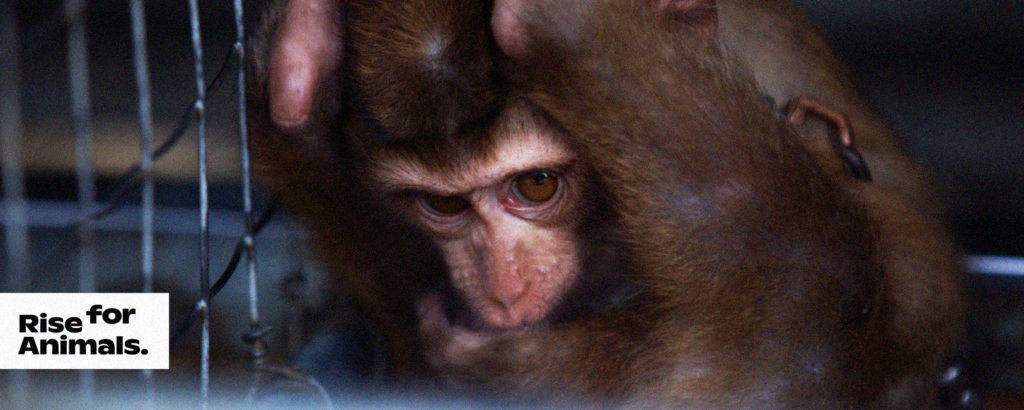
The U.S. is the Macaque-Trade Ringleader
Rise for Animals, 5/7/2024
Among nonhuman primates, macaques are animal researchers’ most common victims. The “billion-dollar” trade in macaques for human “science” is being driven most heavily by one country: the United States. 📰 Full Story →
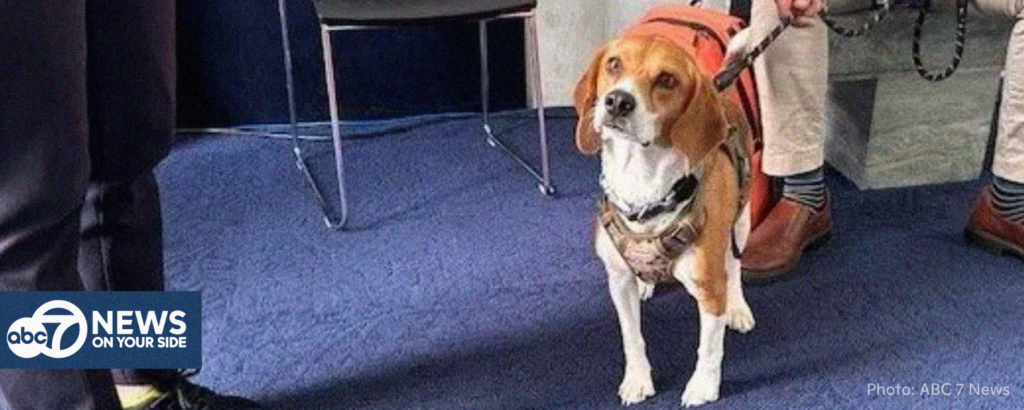
EPA Deadline to Stop Unnecessary Animal Testing Vanishes, Lawmakers Are Not Happy
Scott Taylor, 5/7/2024
“The U.S. Environmental Protection Agency (EPA) just put a hold on reducing unnecessary animal testing. Five years ago, it announced ending that type of research by 2035 but now that deadline has disappeared.”
“The EPA has now eliminated its phase-out dates and has prompted a letter from a bipartisan group of 37 congressional members that raises concerns regarding accountability and transparency.” 📰 Full Story →
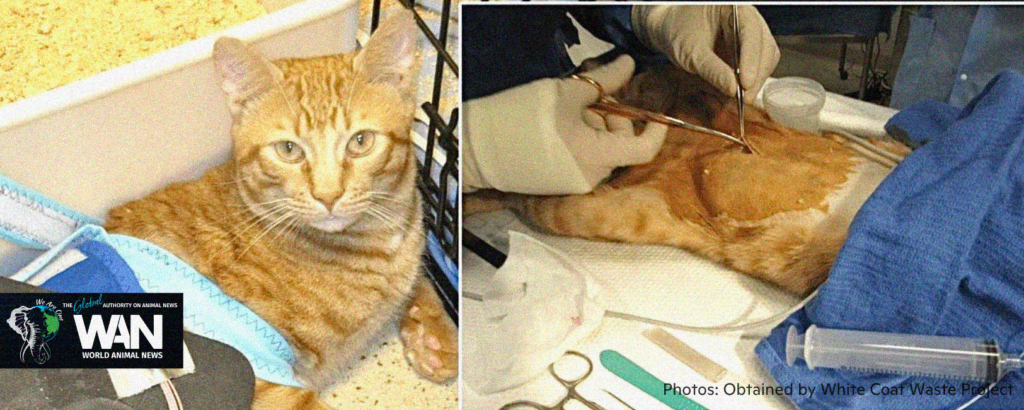
Horrific Government Experiments That Killed & Crippled Kittens Shut Down Following Major Investigation
World Animal News, 5/7/2024
“Dozens of kittens will no longer be forced to walk on treadmills after being horrifically mutilated by taxpayer-funded experiments at the Louisville Veterans Affairs Medical Center (Louisville VA) and the University of Louisville (UL)….”
“The sickening tests, allegedly funded for the past five years by the VA and the NIH, consumed more than $5.9 million of taxpayer-supported funds and were slated to kill up to 80 kittens – all while yielding no patents, outcomes, clinical trials, or treatments for people to date.”
“The tests included having the cats’ spines severed, their legs mutilated, their throats stuffed with balloons, and parts of their brains damaged.”
“ . . . casualties included Pecan [Known in the lab as #15KQC4], a female tabby ‘eager for head rubs and chin rubs,’ and Torti [ID number #M209629], a tiny orange tabby whom experimenters noted was ‘playful and purring’ four days before they killed her . . . Other victims included a female kitten known only as #M209882, whom [sic] at one point ‘was purring so loudly’ that the experimenters reportedly ‘couldn’t hear,’….” 📰 Full Story →
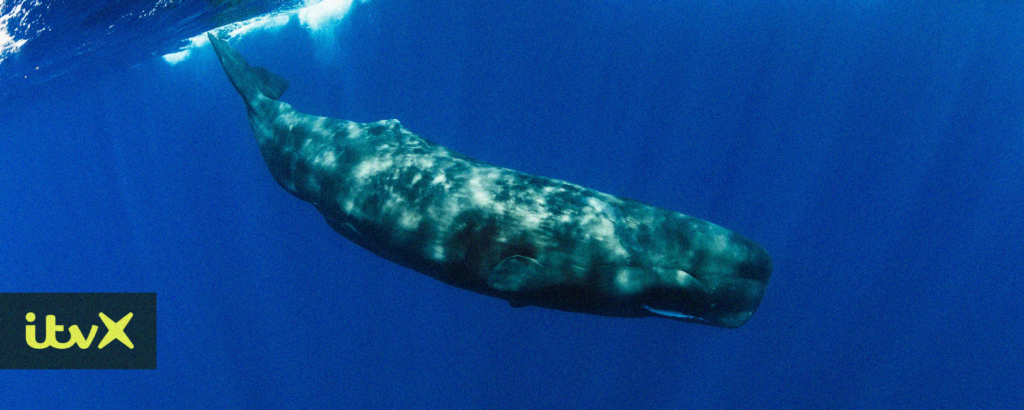
Whale Song Has Its Own ‘Phonetic Alphabet’, Research Shows
itv News, 5/8/2024
“Sperm whale calls are so complex they are comparable to the human language, scientists have discovered.”
“They found the whales use a sort of ‘phonetic alphabet’, enabling them create [sic] building blocks of language similar to words and phrases.”
“The scientists say they have found four basic components they think make up the whales’ phonetic alphabet. This alphabet can then be used by the whales in an unlimited number of combinations – similarly to how words are used by humans. The whales also vary the rhythm and tempo . . . adding an extra layer of complexity and meaning.” 📰 Full Story →
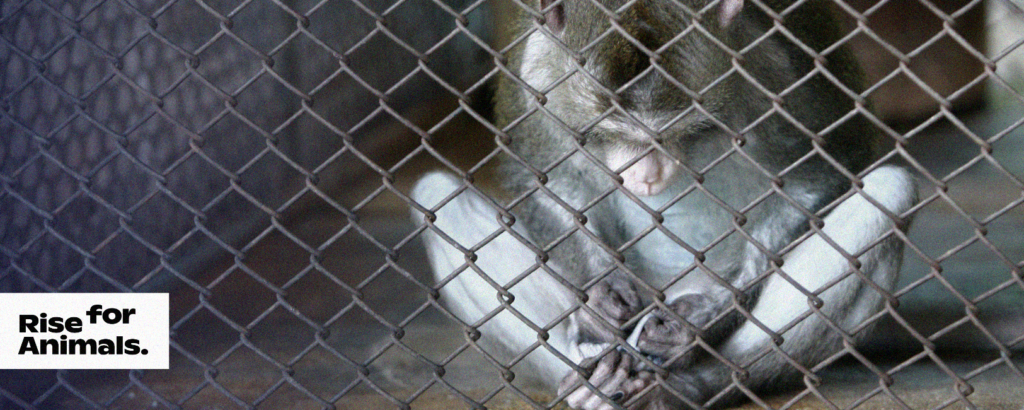
Help the “talkers, cage-rattlers, bar-bangers”
Rise for Animals, 5/9/2024
In the international macaque trade, monkeys are snatched from their rightful, wild homes and shipped away to be used and exploited by humans. Many macaques will not withstand the trip, their wooden transport crates becoming their coffins. And many who do survive will, then, continue on to imprisonment and abuse in U.S. labs. 📰 Full Story →